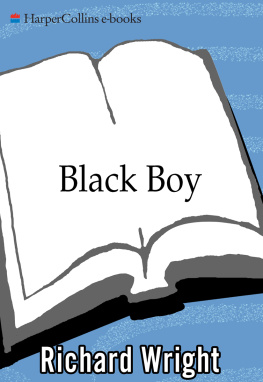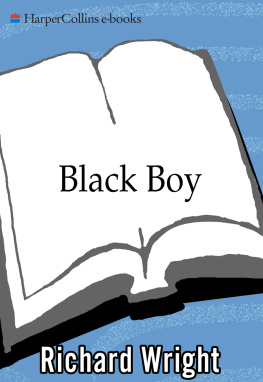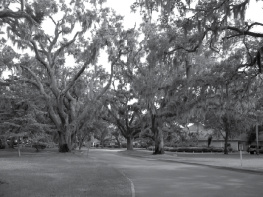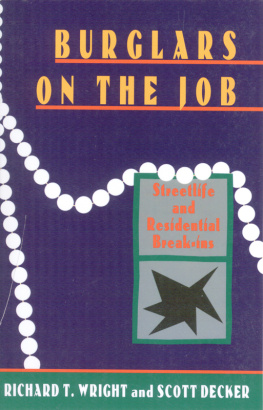For my friends Alva and Gunnar Myrdal, who suggested this book and whose compassionate hearts have long brooded upon the degradation of human life in Spain.
The 1950s marked a profound change in the literary and intellectual life of Richard Wright. Part of his prolific legacy from that decade is Pagan Spain (1957), which is best understood in the context of the time in which he wrote it.
The book appeared after his well-earned reputation of the previous decade, when he was nationally acclaimed for works which included the novella collection Uncle Toms Children (1938, 1940), the novel Native Son (1940), Twelve Million Black Voices: A Folk History of the United States (1941), and the autobiography Black Boy (1945). The 1950s set his career in a new direction. During his fourteen-year residence abroad, he produced, beside several new novels, a sequence of important nonfiction books that established him internationally. In those publications, a new and liberated Richard Wright emerged: one whose identity was not that of a second-class American citizen but a citizen of the world. Along with Pagan Spain, his nonfiction book publications of that period were Black Power: A Record of Reactions in a Land of Pathos (1954), on his investigative journey to the Gold Coast (now independent Ghana); The Color Curtain (1956), his report from Indonesia on the Bandung Conference, which was published in French a year before the American edition; and White Man, Listen! (1958), a collection of his essays and speeches.
Pagan Spain is Wrights only nonfiction book about a European country. It reveals the metamorphosis of a man of letters whose first seven years in France were spent reading and reflecting; during those first years he did not put pen to paper, preferring a kind of sabbatical to reeducate himself. Living in Europe resulted in a new phase of political and cultural awareness, seeing the Old World in relation to the New in aspects evident in his interpretation of Spain. In 1946 he arrived in Paris to spend a few months as guest of the French government. There Gertrude Stein told him, Dick, you ought to go to Spain Youll see what the Western world is made of
Like Stein and other long-time expatriates Wright grew more conscious of his Westernness following his permanent move to Paris in 1947. For some, the consciousness of being Western is a cultural province of the spirit. For Wright, it was also a complex fate. As a man of color he inevitably identified the West with colonialism and imperialism, which he scorned, while as an intellectual he identified with the secular humanism of Western civilization. That aspect of Wrights thought is more clearly understood in his comments about himself in the final chapter of Pagan Spain, where he states, I was a part, intimate and inseparable, of the Western world
The hypothesis that Spain was out of the occidental orbit had been written about by others before, but Wright thought it worthy enough to explore thematically in ways demonstrated in this book. He never intended Pagan Spain to be a travel guide for tourists. It is a personal report, a chronicle that portrays a nation scarred by the Spanish civil war and the dictatorship of Francisco Franco.
The manuscript was completed after three investigative trips to Spain: one from mid-August to mid-September 1954, a second from early November to mid-December that same year, and a third from February to April 1955. His published text cites only the first and the third visits. He later regretted that some critics estimated that he stayed only about six weeks in Spain. One book reviewer wrote: It is a brave man who writes a book of this sort about a country he has visited only twice for short periods of time.
Scholars who have examined Wrights original manuscripts at the Beinecke Library at Yale University will recognize that the published version of Pagan Spain is considerably shorter than his original text, which was over five hundred pages long. Due to the length of the original manuscript, Wrights publisher, Harper and Row, required deletions, which he agreed toalbeit reluctantly. The account of his travels to Cordoba was cut from his final manuscript, as were pages describing the famous Las Fallas festival in Valencia. His final, revised text was completed in July 1956 and published seven months later.
In form, style, and technique, the book is an artful combination of first-person narrative, eyewitness reporting, commentary, anecdotes, vignettes, and dramatic dialogue. In many respects it has a cinematic quality, like a cultural documentary film. Wrights interviews in Barcelona, Guadalajara, Madrid, Granada, and Seville* introduce us to people from back alleys to boulevards, and all walks of life. He sets a scene and lets people talk; thereby a story unfolds. Though he confessed his knowledge of the Spanish language was vague and he mixed French and English to communicate, some readers will question how so many Spaniards spoke such fluent, colloquial Englishgiven Wrights aim to show all this poverty, this cheating, this prostitution, this ignorance.
Readers who approach the text looking for Richard Wrights racial experience as an American of African descent in Spain will not find that a nucleus of the book. He hints that he anticipated possible race prejudice but encountered none. Yet, astutely, he also observed that, Spanish youth was cut off from the multitude of tiny influences of the modern Western world. They had no racial consciousness whatsoever. The book contains few corn-Anglicized spellings of Spanish cities and communities are cited in Wrights text. This ments about race, although it occasionally alludes to memories that Wright, then in his forties, linked to his racial roots in the American South. However, echoing some modern critical approaches to Pagan Spain, Julia Wright, daughter of Richard Wright and author of a forthcoming book, Daughter of a Native Son,* observes that, the very aspects of suffering, oppression, and religious mysticism Wright is most sensitive to in Spain are those which molded his own oppressed youth in the American South. He is often fascinated in Spain by situations which echo or counterpoint his own experience of oppression in America. It doesnt have to be racismit can be the culture of poverty. This is most visible in his treatment of the Spanish Catholicism but also of the opposition he sees between the Spanish prostitutessymbolizing the sexual abuse of black womenas against the untouchableness of the virgins, reminding him of the Southern white women of his childhood.
His first chapter sets the tone of the book: The Spanish war had been over for eighteen years, yet its black shadow still lay over the minds and feelings of the people. His narrative unfolds with a picture of Spanish society that he found both complex and unsettling: a nation that was not only a police state under Franco but also a sacred state under a yoke of messianic Catholicism. Collectively, it appeared to be not a rational, secular, modern European nation but a pagan bastion held hostage by a tradition of religious rituals, processions, confessions, shrines, pilgrimages, fiestas, and archaic attitudes toward women. In such an atmosphere, Generalissimo Francisco Francothe caudilloruled as a Holy Emperor, issuing decrees and edicts like a pope and exercising repressive rule to benefit wealthy landowners at the expense of the dispossessed, through the terror of his Civil Guard. Political dissent was unacceptable, Protestant worship discouraged, freedom of the press forbidden, civil liberties nonexistent, hunger rampant, and average salaries as low as the morale of most of the people.











